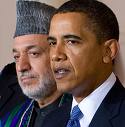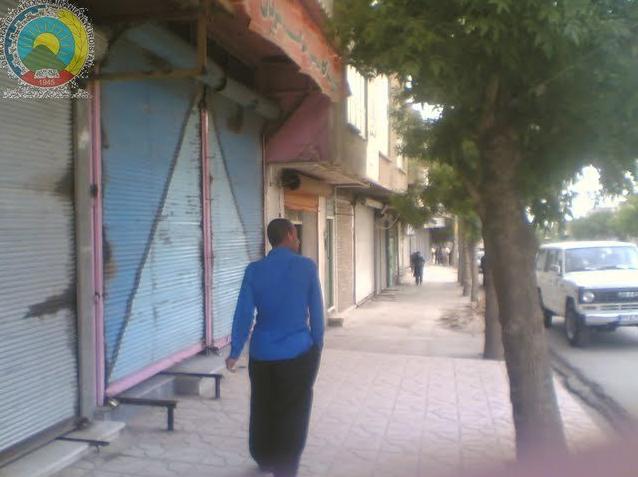Friday
May142010
Iran Analysis: The Economic Squeeze and the Real Sanctions Story (Colvin)
 Friday, May 14, 2010 at 8:42
Friday, May 14, 2010 at 8:42  Ross Colvin writes for Reuters:
Ross Colvin writes for Reuters: The Obama administration is waging a largely behind-the-scenes campaign to convince foreign companies that it is becoming too politically risky for them to do business with an increasingly isolated Iran.
On the world stage, the United States and its allies are aggressively pushing for new sanctions on Iran over its nuclear program. Out of the public eye, it has dispatched a top U.S. Treasury official to foreign capitals to talk to governments, financial regulators, banks and business leaders.
The Latest from Iran (14 May): The Meaning of the Strike?
Stuart Levey, the under secretary for terrorism and financial intelligence, is armed with U.S. intelligence on how Iran's powerful Islamic Revolutionary Guard Corps is controlling a growing swath of Iran's economy and is setting up front companies to try to evade sanctions.
His mission is part of a multi-pronged U.S. effort to tighten the screws on Iran, running parallel to the drive for fresh U.N. sanctions.
Levey, a silver-haired former white-collar criminal lawyer appointed in 2004, has been successful in persuading foreign banks to cut ties with Iran. Now, he is widening his focus to include service providers, insurers and manufacturers.
"We view the business community as an ally and we talk to them in that sense. We have information regarding Iranian illicit conduct that they might not have, and we provide them with the advantage of our viewpoint so they can better assess their own risks," Levey told Reuters in an interview.
Since March a spate of foreign companies have announced plans to cut, suspend or curb ties with Iran, including oil majors Eni, LUKOIL and Royal Dutch Shell, Indian refiner Reliance Industries, U.S. construction and mining equipment maker Caterpillar and luxury German carmarker Daimler.
Accounting giants KPMG, PriceWaterhouseCoopers, and Ernst & Young have also declared themselves free of any business ties to Iran.
The U.S. Government Accountability Office on Wednesday identified seven foreign companies involved in Iran's energy sector between 2005 and 2009 that had received U.S. government contracts. It had not probed whether any laws had been broken in their dealings with Iran.
ASSESSING THE IMPACT
"There is a tide setting in against doing trade with Iran and it is just becoming more difficult for everyone involved," said Philip Roche, London-based partner in the shipping disputes and risk management team with law firm Norton Rose.
It is hard to assess the economic impact of companies cutting their exposure. Experts say it depends on the type of business, but U.S. officials say the collective action is significant.
"As a result of our efforts to impose additional multilateral sanctions on Iran, as well as Iran's own defiance, international companies are increasingly coming to the correct conclusion that the risks of doing business with Iran are high and have announced that they are withdrawing from Iran," White House National Security Council spokesman Mike Hammer said.
The U.S. government claims no direct credit for the rash of company announcements, but a German equities analyst said he believed the decision by German engineering conglomerate Siemens in January not to accept further orders from Iran was at least partly due to government pressure.
Levey, however, portrays himself as a messenger and takes issue with any suggestion that companies have been pressured into doing Washington's bidding through threats of punitive action.
"Some people think it's a better storyline to say we twist people's arms. But we don't," he said.
"One of the things that is changing is a growing awareness of the role that the IRGC is playing in the Iranian economy."
Businesses, however, will also be mindful of the huge settlements that Britain's Lloyds TSB Bank and Switzerland's Credit Suisse agreed to in December after facing charges of violating U.S. laws on doing business with countries like Iran.
COMPETITORS CAN MOVE IN
The decision by companies such as Caterpillar to instruct non-U.S. subsidiaries not to sell goods to Iran will have a limited impact. As Caterpillar has pointed out, it cannot stop its products from being sold on in the secondary market.
Competitors can also move in to fill the vacuum left by the companies, said Fariborz Ghadar, an Iran expert at the Center for Strategic and International Studies in Washington.
Ghadar said the decision by major oil companies to cut ties, however, was devastating. While Iran has the world's third-biggest oil reserves, it desperately needs foreign investment in its energy sector to improve refining capacity.
Levey is not the only one talking to business.
New York advocacy group United Against Nuclear Iran, which keeps a database of companies doing businesses with Iran, has waged a letter-writing campaign urging them to cut their ties.
"If we have 10, 15, 20 of these multinational companies pull out of Iran it will force that economy into the red zone," said the group's president Mark Wallace, a former ambassador under President George W. Bush.
Analysts warn that putting too much pressure on the Iranian economy could backfire, giving President Mahmoud Ahmadinejad a scapegoat for Iran's current economic ills.
"The broad goal is not to completely squelch all Iranian business activity," Levey countered. "My job is to design measures that will have the desired impact on the government of Iran and minimize the impact on the average Iranian citizen."
But, he added: "It's hard to get it surgically precise."
tagged  Caterpillar,
Caterpillar,  Center for Strategic and International Studies,
Center for Strategic and International Studies,  Credit Suisse,
Credit Suisse,  Daimler,
Daimler,  Eni,
Eni,  Ernst & Young,
Ernst & Young,  Fariborz Ghadar,
Fariborz Ghadar,  Government Accountability Office,
Government Accountability Office,  Islamic Revolution Guards Corps,
Islamic Revolution Guards Corps,  KPMG,
KPMG,  LUKoil,
LUKoil,  Lloyds TSB,
Lloyds TSB,  Mark Wallace,
Mark Wallace,  Mike Hammer,
Mike Hammer,  Norton Rose,
Norton Rose,  Philip Roche,
Philip Roche,  PriceWaterhouseCoopers,
PriceWaterhouseCoopers,  Reliance Industries,
Reliance Industries,  Reuters,
Reuters,  Ross Colvin,
Ross Colvin,  Royal Dutch Shell,
Royal Dutch Shell,  Stuart Levey,
Stuart Levey,  United Against Nuclear Iran in
United Against Nuclear Iran in  Middle East & Iran
Middle East & Iran
 Caterpillar,
Caterpillar,  Center for Strategic and International Studies,
Center for Strategic and International Studies,  Credit Suisse,
Credit Suisse,  Daimler,
Daimler,  Eni,
Eni,  Ernst & Young,
Ernst & Young,  Fariborz Ghadar,
Fariborz Ghadar,  Government Accountability Office,
Government Accountability Office,  Islamic Revolution Guards Corps,
Islamic Revolution Guards Corps,  KPMG,
KPMG,  LUKoil,
LUKoil,  Lloyds TSB,
Lloyds TSB,  Mark Wallace,
Mark Wallace,  Mike Hammer,
Mike Hammer,  Norton Rose,
Norton Rose,  Philip Roche,
Philip Roche,  PriceWaterhouseCoopers,
PriceWaterhouseCoopers,  Reliance Industries,
Reliance Industries,  Reuters,
Reuters,  Ross Colvin,
Ross Colvin,  Royal Dutch Shell,
Royal Dutch Shell,  Stuart Levey,
Stuart Levey,  United Against Nuclear Iran in
United Against Nuclear Iran in  Middle East & Iran
Middle East & Iran 





